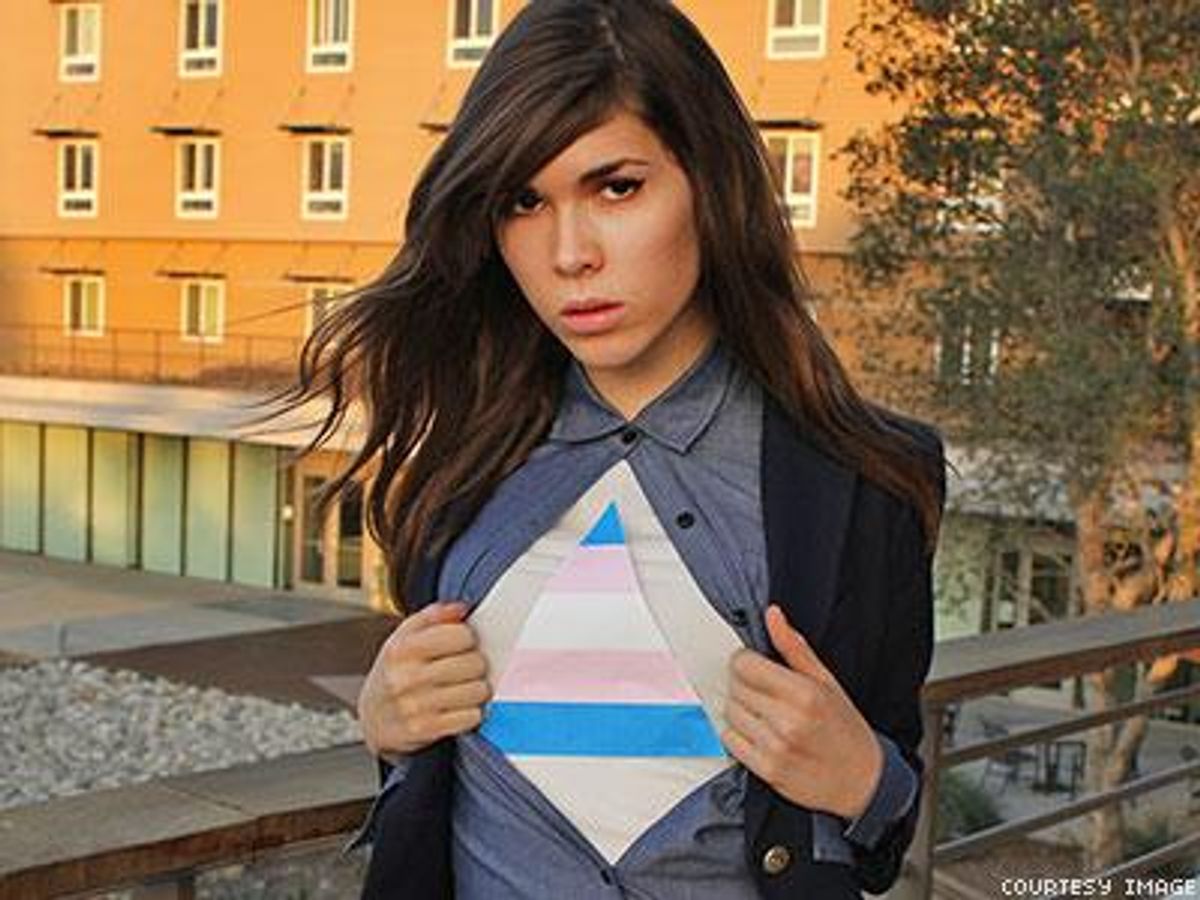Eli Erlick -- the 19-year-old dynamo behind Trans Student Education Resources -- knows firsthand the need for more trans-inclusive policies and awareness in schools.
After co-founding TSER at age 16, the trans activist now says her inspiration for establishing a nonprofit that helps educate both schools and trans students on effective practices was clear from a young age.
"Statistics, like GLSEN's School Climate Survey, found that 80 percent of trans students don't feel safe in school, which is a ridiculous number. I know I didn't feel safe," she tells The Advocate.
"Coming out as queer and trans in a rural community when I was 8 years old made it very difficult to really express myself," she recalls. "It was a hard experience. But it greatly influenced how much I wanted to be an organizer. It influenced my perception of what I would be doing."
In turn, Erlick has inspired so many others. Now three years strong, TSER is a youth-led organization with members across the U.S. that provides workshops, model policies to help trans students start conversations with administrators, lists of trans-friendly conferences and camps, and colorful infographics that break down the statistics in easy-to-understand ways.
Considering the broad appeal and applicability of TSER's resources -- which the group makes even more accessible by traveling the U.S. and speaking to students and administrators at conferences -- it's no surprise Erlick was awarded one of Peace First's $25,000 grants this year.
A D.C.-based nonprofit, Peace First awarded five youth between the ages of 12-22 grants to "further their peacemaking work" over a two-year period. According to Erlick, TSER was picked out of an applicant pool of nearly 1,100 after a months-long application process that she completed on top of being a full-time college student, Trevor Project Youth Advisory Council member, and Gay, Lesbian and Straight Education Network National Advisory Council member.
With the funding, Erlick says that she and TSER's youth leaders intend to deepen their vital work. "Since getting the grant, we've definitely been expanding a lot," she tells The Advocate. "As of right now, we know that a large portion of the grant money will go to sending different TSER members to conferences to speak there, as well as providing scholarships for trans students."
The impact of this kind of outreach, led by students themselves, is immeasurable, and Erlick herself is an inspiring young woman. But, she emphasizes to The Advocate, all of her achievements with TSER have been a group effort.
"We operate on an intersectional framework of activism to make sure that the most marginalized communities get the attention they need to succeed, while pushing back on oppression through collaborative action," she explains. "We like to include as many trans youth as possible in our actions so we can work together to teach each other how to be the best organizers we can be."

















































































